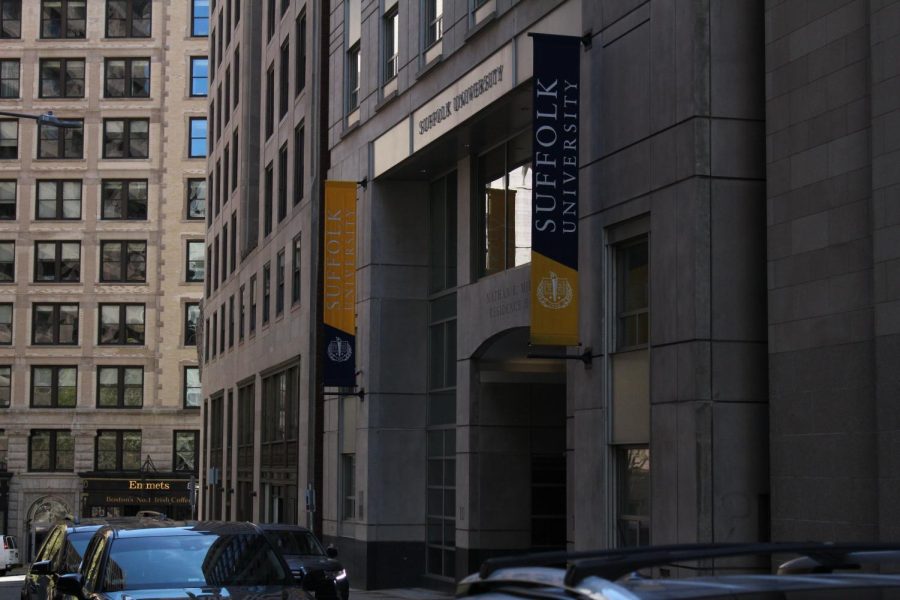West Roxbury continues to be the front lines in a battle against Spectra Energy’s construction of a new lateral pipeline that has prompted numerous protests in the community.
On Oct. 5, Suffolk University senior and history major Tim Clancy appeared before Judge Kathleen Coffey. She reviewed the charges, including a felony charge of destruction of property, that Clancy received for his role in a nonviolent protest of the West Roxbury Lateral Pipeline on Aug. 18. Clancy had to be removed from the entrance gates of the Spectra Energy metering and regulation center by emergency responders, who needed industrial circular saws to release him from the thick metal lockbox that anchored him to the gate, which was previously reported in The Suffolk Journal. This act was a part of an ongoing series of protests intending to slow down Spectra Energy’s construction of the pipeline, which has continued to garner criticism that has expanded past the borders of West Roxbury.
“I had confidence that it was going to get worked out somehow,” said Clancy in a post-courtroom interview with The Suffolk Journal on Oct. 14. “I didn’t think it was going to happen that day.”
Judge Coffey dismissed the felony conviction, issuing three conditions for Clancy to adhere to. According to Clancy, he has been placed on probation for a period of six months, during which he must exhibit good behavior. He was also ordered to pay a small restitution fee. The final condition was a 100-yard stay-away order from the metering and regulation where he was arrested. According to Clancy, members of the National Lawyers Guild represented him, which they have done for previous similar cases of protest.
The court’s ruling, which may hinder Clancy future involvement in protests at the construction site, he said it has not deterred him from continuing his active participation in advocacy against the West Roxbury Lateral pipeline. For the residents of West Roxbury, the pipeline’s close proximity to an active blasting quarry has been most immediate cause for concern, but concern about the environmental effects of fracked gas have compounded as well.
“Any time they turn the pressure on the pipeline it’s like setting a timer on a bomb, and it’s a bomb that is within a few city blocks of my house,” said Clancy. “It’s terrifying, and on top of that it’s fracked gas which is dirty, unclean and dangerous to the environment.”
The overarching environmental debate surrounding this project has influenced activists around America to get involved. Karenna Gore, Director of the Center for Earth Ethics at Union Theological Seminary and eldest daughter of former Vice-President Al Gore, was arrested during a protest on Jun. 30.
Gore, along with 22 other protesters, was arrested while lying down in the trench that the pipeline was being placed in. The group’s message was to draw parallels to the mass graves being dug in Pakistan to anticipate deadly heat waves, that activists like Gore believe are climate-fueled.
“I was very surprised that with all of the elected officials against the pipeline that it was still going in,” said Gore in a recent phone interview with theJournal. “I was drawn to this particular action because of the connection that it was drawing to the people dying from climate impact.”
According to Gore, she witnessed an interview with a Pakistani gravedigger who was preparing a mass grave in anticipation for an oncoming deadly heat wave was the inspiration for this course of action. Before the protesters descended into the trench, clergy members gave eulogies to represent the lives at stake. Emergency responders soon arrived. Gore said that the protesters were charged with trespassing, disorderly conduct and resisting arrest. Some of them, including Gore, were taken to a jail cell and given plea options that would effectively end all legal procedures, but Gore said she did not take the deal.
“I wanted to be a part of raising consciousness about climate change and the connection between fossil fuel infrastructure,” she said. “I thought that staying in the process of engaging in our legal system to the point of their being a public hearing of facts about how this pipeline company has the authority to do what they’re doing, as well as the harm this is doing.”
Since the ordeal, she said she has been back to Boston twice and expects to be back in November when the pipeline is due to be completed.
“I think it has spread some awareness,” she said. “I actually feel that, rather than one case, there has been an aggregate effect if the different acts of civil disobedience that are going on around the country opposing new fossil fuels.”
According to Clancy, the pipeline’s near completion has prompted protest groups such as Stop the West Roxbury Lateral (SWRL) and Resist the Pipeline, to refocus their efforts.
“From what I understand we are shifting from trying to stop construction,” said Clancy. “That involves putting pressure on the companies who are buying the gas.
According to Clancy, Gore and protest group leader Mary Boyle, the fight will go on until there is nothing left to fight for. For a community that has never been this thoroughly mobilized, the pipeline has continued to be a rallying point for a borough that is feeling both forgotten and neglected.
“I’ve definitely learned that we’re tougher than we think,” said Clancy. “We are stronger than we think and that West Roxbury is worth fighting for. It has in a way opened my eyes to how important it really is to me. It has been my home my entire life. That is irreplaceable.”



















